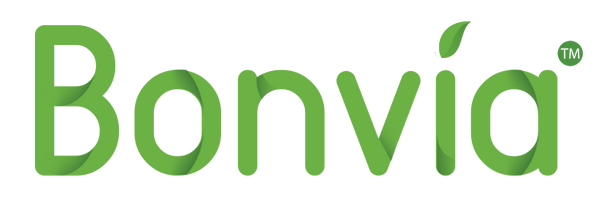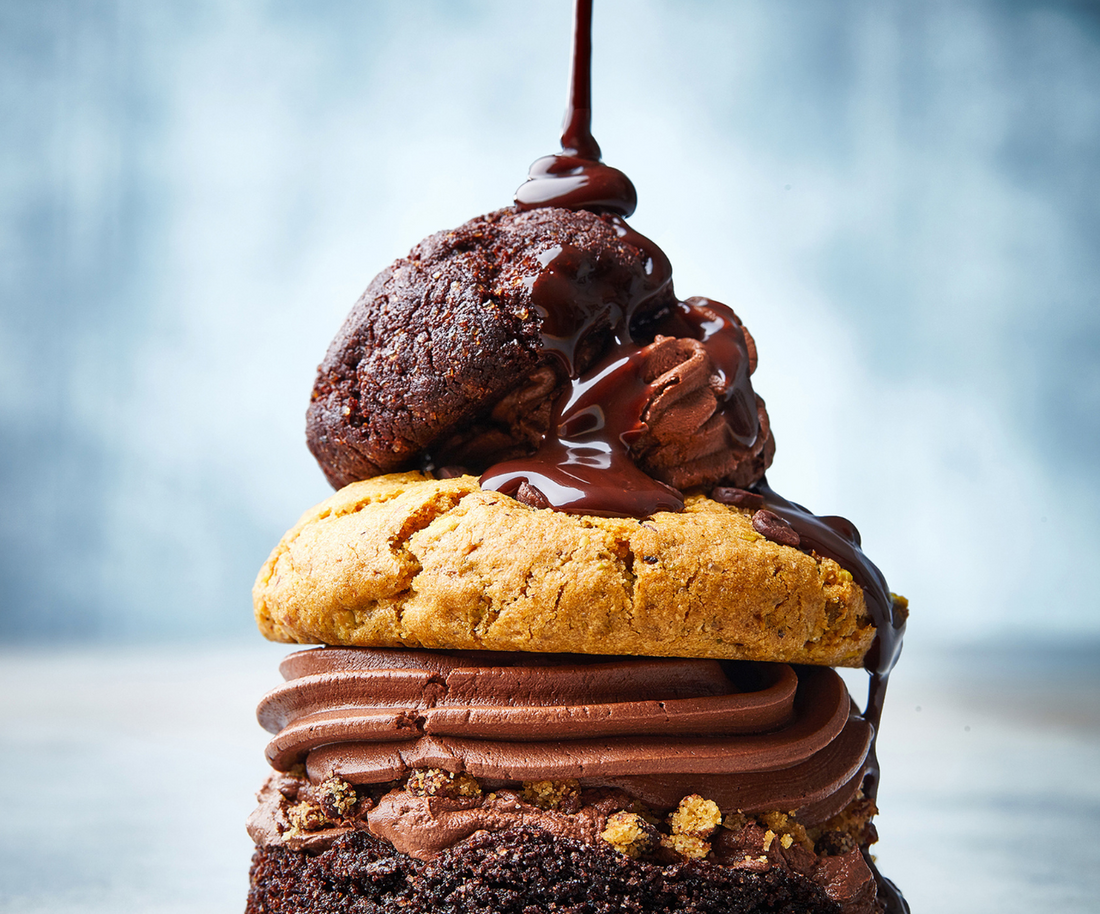Ramadan, the holy month of fasting and reflection, is here, and it's time to start planning for the special meals and sweet foods that we'll be enjoying with our loved ones after breaking our fasts.
While traditionally sweet foods like dates, baklava, and kanafeh are often served during Ramadan, these sugary delights can be overwhelming for some people.
Luckily, there are plenty of ways to satisfy your sweet tooth without relying on refined sugar.
In this article, we'll explore 10 delicious sweet foods that you can make without sugar this Ramadan, so you can enjoy the festivities without sacrificing your health or your taste buds.
Importance Of Sweet Dishes In Ramadan

Sweet dishes play an important role in Ramadan, the holy month of fasting observed by Muslims around the world.
After breaking their fasts at sunset, Muslims often indulge in sweet treats to satisfy their cravings and replenish their energy levels.
These sweet desserts are also a way to celebrate the end of a long day of fasting and to gather with friends and family to share a meal.
In addition to their cultural significance, they can also provide important nutrients and energy for those observing Ramadan.
Many traditional sweets, such as dates and figs, are high in fiber, potassium, and other essential vitamins and minerals that can help to support the body during the fasting period.
However, it's important to remember that moderation is key when it comes to consuming sweet dishes during Ramadan.
Excessive consumption of sugary treats can lead to health problems like obesity, diabetes, and other chronic conditions.
Therefore, it's important to balance indulgences with healthy, nutrient-rich foods and to practice self-control and mindfulness when enjoying sweet treats during Ramadan.
Best 10 Sweet Foods To Make Without Sugar This Ramadan

Are you looking for easy sweet recipes to enjoy this Ramadan? Let’s have a look at the best 10 sweet foods you can make without sugar.
1. Date And Nut Energy Balls
Dates are a staple food in Ramadan, and these energy balls are a delicious and healthy way to enjoy them without any added sugar.
To make them, simply blend dates, nuts, and spices like cinnamon and nutmeg together in a food processor until you get a sticky dough-like consistency.
Then roll the mixture into small balls and refrigerate for at least an hour before serving.
These energy balls are perfect for a quick snack during a busy day of fasting or as a sweet treat after breaking your fast.
2. Chia Seed Pudding
Chia seeds are a nutritional powerhouse, packed with fiber, protein, and healthy fats.
To make chia seed pudding, simply mix chia seeds with your favorite milk, such as coconut or almond milk, and add vanilla extract, honey, and fresh fruit like berries or chopped mango.
Refrigerate the mixture for at least two hours or overnight, and enjoy a delicious and healthy dessert that will keep you full and satisfied.
3. Lassi
Lassi is a refreshing drink that's popular during Ramadan, but what if you're looking for a sugar-free option?
There are plenty of ways to make delicious lassi without adding sugar.
Try using natural sweeteners like dates or honey, or swap out sugar for a sugar-free sweetener like stevia.
You can also experiment with adding flavorful ingredients like cardamom, saffron, or rose water to create a unique and satisfying taste.
Don't let a sugar-free diet keep you from enjoying this traditional Ramadan drink - try a sugar-free lassi recipe today!
4. Banana Oat Cookies
These easy-to-make cookies are perfect for a quick snack or dessert during Ramadan.
Simply mash ripe bananas and mix them with oats, nuts, and spices like cinnamon and nutmeg.
Bake the mixture in the oven for 15-20 minutes, and you will have a delicious and healthy treat that is perfect for satisfying your sweet tooth.
5. Almond Butter Cups
These homemade candy cups are a healthier version of the popular peanut butter cups.
To make them, simply mix almond butter with coconut oil and chocolate, and pour the mixture into small paper cups or muffin tins.
Refrigerate for at least an hour, and enjoy a delicious and healthy treat that is packed with protein and healthy fats.
6. Carrot Halwa
This traditional Indian dessert is usually made with sugar, but it can easily be adapted to be sugar-free.
Simply grate carrots and cook them in milk, ghee, and spices like cardamom and cinnamon until the mixture thickens.
You can add Bonvia Stevia to sweeten the mixture and enjoy a delicious and healthy dessert that is packed with vitamins and minerals.
7. Fruit Salad
A simple and refreshing way to satisfy your sweet tooth during Ramadan is by making a fruit salad with your favorite seasonal fruits.
Add a squeeze of lemon juice and sprinkle with cinnamon for extra flavor.
This is a healthy and delicious dessert that is perfect for hot summer nights.
8. Pistachio Ice Cream
This dairy-free ice cream is made with pistachios, coconut milk, and dates, making it a healthy and delicious alternative to traditional ice cream.
Simply blend the ingredients and freeze for a sweet and satisfying treat. You can add chopped pistachios or dark chocolate chips for extra crunch and flavor.
9. Coconut Macaroons
These delicious and easy-to-make cookies are a great way to satisfy your sweet tooth without any added sugar.
Mix shredded coconut with egg whites, vanilla extract, and a pinch of salt, and bake the mixture in the oven until the cookies are golden brown.
These coconut macaroons are perfect for a quick snack or a sweet treat after breaking your fast.
10. Chocolate Avocado Mousse
This decadent dessert is made with avocado, cocoa powder, and dates, making it a healthy and delicious alternative to traditional chocolate mousse.
Simply blend the ingredients until smooth, and chill the mixture in the refrigerator for at least an hour.
Discover The Sweet Taste Of Bonvia: All-Natural Stevia Sweetener

Ramadan is a time for spiritual reflection, self-discipline, and giving to others. For many Muslims around the world, Ramadan also involves a change in dietary habits.
During this time, many people fast during daylight hours, and when they break their fast, they often look for healthy and nutritious foods to replenish their bodies.
One way to make healthy food choices during Ramadan is by using Bonvia natural stevia sweetener as a sugar alternative.
As a natural sweetener, Bonvia is an excellent choice for those looking to reduce their sugar intake and lead a healthier lifestyle.
1. Made From The Stevia Plant
Bonvia is a natural sweetener made from the Stevia plant, which is native to South America.
The plant contains sweet-tasting compounds called steviol glycosides, which are extracted and used to create a calorie-free, low glycemic index sweetener that can be used as an alternative to sugar.
2. No Negative Health Effects
One of the main advantages of Bonvia natural stevia sweetener is that it does not have the negative health effects associated with consuming large amounts of sugar.
It is a great option for those looking to reduce their sugar intake, whether it be for health reasons or weight management.
3. Manages Blood Sugar Level
Bonvia natural stevia sweetener is also ideal for people with diabetes or those looking to manage their blood sugar levels.
Unlike sugar, it does not raise blood glucose levels and has a glycemic index of zero.
This means it is safe for people with diabetes to consume in moderation, as it will not cause a spike in their blood sugar levels.
4. Versatile Alternative To Sugar
In addition to its health benefits, Bonvia natural stevia sweetener is also very versatile and can be used in a wide range of applications.
It can be used to sweeten drinks, desserts, and even savory dishes. It has a clean, sweet taste that is comparable to sugar, without calories and negative health effects.
Overall, Bonvia natural stevia sweetener is a great alternative to sugar and artificial sweeteners.
It is a natural, calorie-free sweetener that can be used in a variety of applications, making it a great choice for those looking to lead a healthier lifestyle.
Buy Bonvia today to benefit from all it has to offer.
Final Thoughts
In conclusion, there are plenty of delicious and healthy sweet treats that you can enjoy during Ramadan without the need for refined sugar.
From fruity desserts to creamy puddings, natural sweeteners like Bonvia stevia can be used to create a variety of satisfying and nutritious dishes.
By incorporating these 10 sweet foods into your Ramadan meal plan, you can enjoy the sweetness of natural ingredients without compromising on your health goals.
Additionally, using natural sweeteners like Bonvia stevia can help you manage blood sugar levels, reduce the risk of health problems, and maintain a healthy weight.
Whether you are fasting or simply looking for healthier sweet dessert options, these 10 easy sweet recipes made without sugar can help you satisfy your sweet tooth while keeping your body energized and nourished during the holy month of Ramadan.
FAQs
1. What can I eat that's sweet with no sugar?
If you're looking for sweet foods to eat without sugar, there are plenty of options available.
Fresh fruits like berries, melons, and citrus are a great way to satisfy your sweet cravings while also getting essential nutrients and fiber.
You can also opt for natural sweeteners like honey, maple syrup, or stevia, which can be used in moderation to add sweetness to baked goods, drinks, and desserts.
Additionally, desserts made with almond flour or coconut flour instead of wheat flour can provide a healthier option without sacrificing taste.
With a little creativity and some healthy ingredient substitutions, you can enjoy a wide range of sweet foods without relying on refined sugar.
2. What are the best foods for Ramadan?
The best foods for Ramadan are those that provide sustained energy and nutrition to support the body during the day-long fast.
Whole foods such as complex carbohydrates, protein, and healthy fats are ideal for keeping the body fueled and satisfied.
Complex carbohydrates like whole grains, fruits, and vegetables are a great source of energy and fiber, while protein-rich foods like lean meats, beans, and nuts can help keep you feeling full for longer.
Healthy fats like avocado, nuts, and seeds can provide long-lasting energy and help regulate blood sugar levels.
Additionally, drinking plenty of water and electrolyte-rich fluids like coconut water can help prevent dehydration and maintain optimal hydration levels during the fast.

